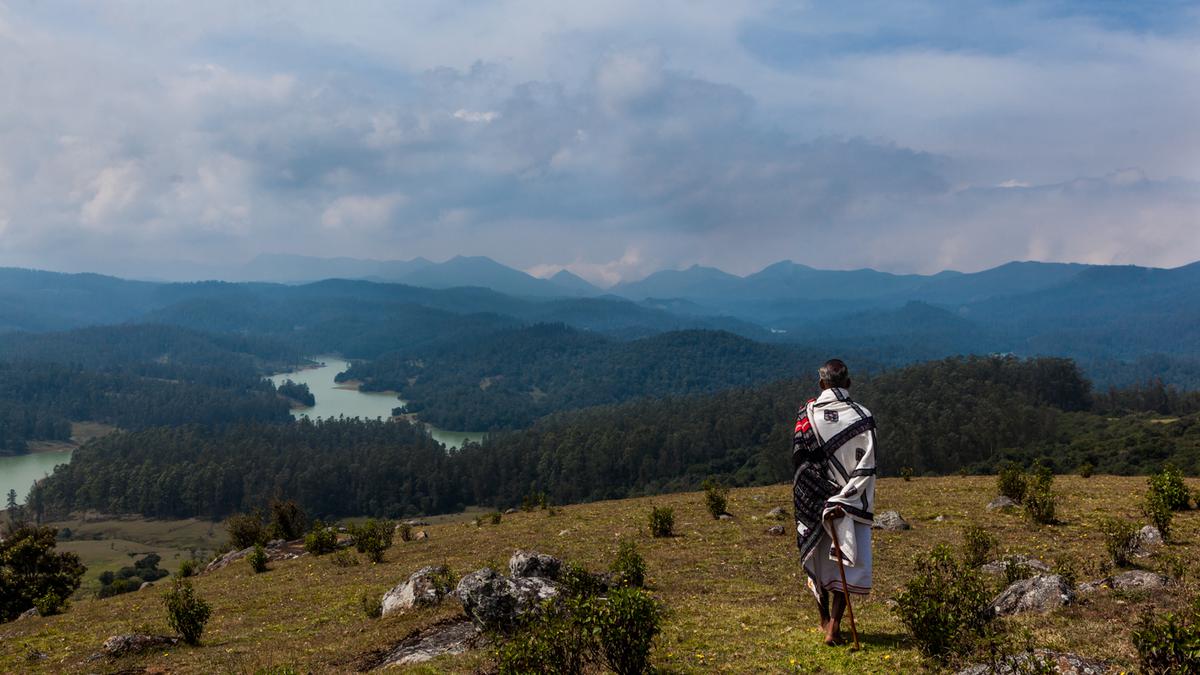
The Nilgiris Earth Festival begins from December 19
The Hindu
The Nilgiris Earth Festival turns the spotlight on inclusivity as it brings together food, ecology, and people, that is quintessentially Nilgiris
The honey collectors of the Nilgiris begin their honey hunt, either from a cliff or tree, with rituals and ceremonies. One such ritual is that a honey hunter who goes to collect cliff honey — a life-threatening expedition — climbs down the cliff via the rope secured by his brother-in-law. His role is to protect the collector and ensure his sister is not widowed. Listen to the stories from indigenous people who bring their local food, honey, and produce at The Nilgiris Earth Festival (TNEF) formerly The Nilgiris Wild Foods Festival, that shines the light on food, culture, and ecology that is quintessentially Nilgiris.
At the Habba, the central event on December 21 at The Keystone Foundation in Kotagiri, one can catch Dr Nicola Bradbear’s talk on the significance of honey bees — vital pollinators and their place in a climate-changed world. A bee expert, she is the director of Bees for Development based in the UK.
“No bees, no forest. Right?” asks Ramya Reddy, director of The Nilgiris Foundation (TNF), which is organising the festival that aims to focus on inclusivity. “Ecology and culture are so interwoven with food and with the Nilgiris being rich in all three, we wanted to make it inclusive and interweave them. Food, ecology, and people are of earth. Thus, earth became the fitting word for the festival,” says Ramya adding that Dr Nicola will also walk down participants to a honey tasting bar that showcases varieties of honey.
Highlighting the connection with bees among indigenous communities in the Nilgiris, Pratim Roy, founder-director of the Keystone Foundation, says besides the Kurumbas, Irulas, Todas and Kothas, communities from the Nilgiris Biosphere Reserve (the tri-junction States of Kerala, Karnataka and Tamil Nadu) like Nilambur (Kerala), and Chamraj Nagar (Karnataka) will share stories on honey, starting from its colour, the flower variety, the community, and practices, followed by a tasting session.
Another keynote speaker at the Habba is Yon Fernandez-de-Larrinoa, team leader at UN’s FAO Indigenous Peoples team and a champion of indigenous rights, who is making his trip from Rome. “He is excited to be here and will share a global perspective on the challenges faced by indigenous people around the world,” says Pratim adding that he will also touch upon topics like food security as he shares insights from his rich career.
The TNEF, he says, has a far greater vision with more events, and workshops that strive to go deeper, learn and share from entrepreneurs, artists, activists, ecologists, and citizens. “The festival showcases elements of the Nilgiris to the world. It encompasses and is inclusive, bringing arts, foods, culture, practices, sustainability, and climate all together. This will be the recurring theme every year,” explains Pratim.
While the opening day (December 19) kickstarts with forest bathing at Banagudi Forest (near Kotagiri) with a walk through native forest ecosystem, what follows is a farm-to-fork sojourn at the Emerald Lake area near Udhagamandalam with Vishanth Kumar, a regenerative farmer and chef, and founder of Kikui Farms & Red Hills Tea Estate, where he grows organic vegetables, herbs and spices. The festival aims to raise a toast to people growing high mountain organic produce and organic farmers like Vishanth Kumar who comes from a multi-generational farming family.













